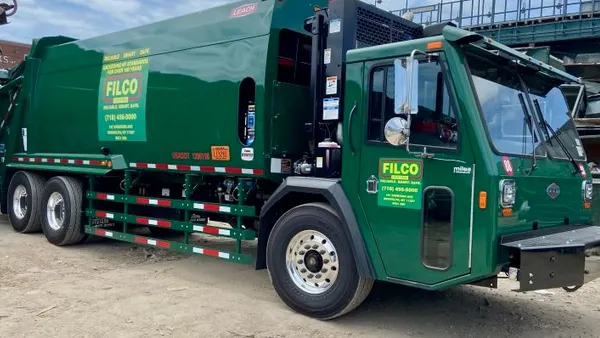Dive Brief:
- Covanta may close a transfer station in Wallingford, CT because the tonnage it receives has decreased, due in part to increased recycling, as reported by the Record-Journal.
- The site also handles waste for four other nearby municipalities through a contract that runs until 2020. Terminating the contract early could result in Covanta paying a buyout fee. Wallingford could also lose out on up to $850,000 per year if the facility closes.
- If the transfer station is closed the municipalities could send their waste to a Covanta waste-to-energy facility instead, which would be less expensive for some. Covanta has asked the towns to decide by Dec. 31.
Dive Insight:
This comes less than two years after Wallingford approved a plan to convert Covanta's facility from a WTE operation into a transfer station. Wallingford's mayor didn't specify how much recycling efforts had increased, but it was clearly significant enough to merit such a quick change from the company.
Earlier this year, Covanta also announced plans to close a WTE facility in Pittsfield, MA due to economic conditions. This plan has since changed due to new state tax credits and the promise of local economic development funds. Such a reversal may be less likely in Connecticut because the company has other locations in the area which can handle the material if the Wallingford transfer station is closed.
While the U.S. climate doesn't currently favor building new WTE facilities, Covanta sees potential for growth in handling special profile waste and helping corporations meet their sustainability goals. At the municipal level WTE is currently playing a smaller role in working toward "zero waste" or high diversion rate goals. The one exception is New York which plans to increase its use of WTE and will be a key Covanta client for years to come.









